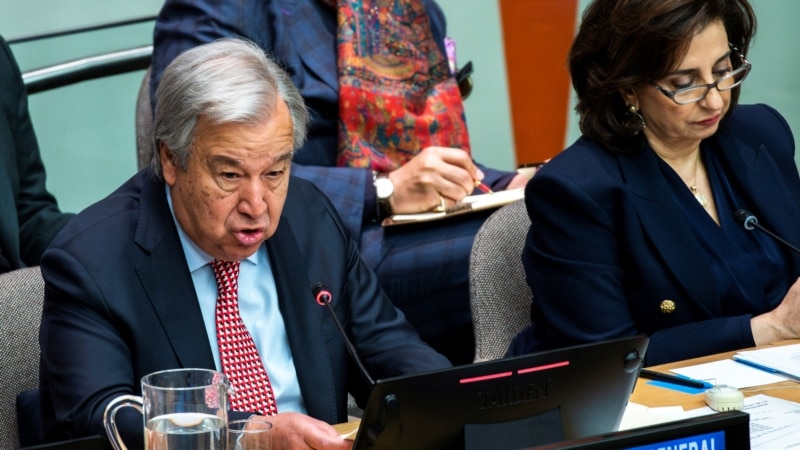U.N. Secretary-General Antonio Guterres said Monday that women and girls around the world are suffering a rollback in rights, while millions more are bearing the brunt of wars and conflict.
“Hard-fought progress is being reversed,” Guterres told hundreds of women’s rights advocates, officials and activists at the opening of the annual two-week session of the Commission on the Status of Women at U.N. headquarters in New York.
He said women’s rights are essentially a question of power and he is worried by negative trends.
“First, despite enormous progress that all of you have helped realize – the patriarchy is far from vanquished. It is regaining ground,” said the secretary-general. “Autocrats and populists are attacking women’s freedoms and their sexual and reproductive rights. They promote what they call ‘traditional’ values.”
He said discrimination against women goes back thousands of years and it is not something that should be brought back, it should be turned back.
“We cannot accept a world in which grandmothers fear their granddaughters will enjoy fewer rights than they had,” he said. “We must speak out, loud and clear: Not on our watch.”
Female poverty
Over the next two weeks, delegates will review how to speed up achieving gender equality, with a focus on addressing poverty and investing in women and girls. U.N. Women says more than 100 million women and girls could be lifted out of poverty if governments prioritize education and family planning, fair and equal pay, and expanded social benefits.
The U.N. chief told the meeting that “poverty has a female face,” because women have less access to land, natural resources and other financial assets. They earn just 51 cents for every dollar men earn, and they are more likely to be food insecure. The U.N. says more than 10% of the world’s women are living in extreme poverty – on less than $2.15 a day.
“Today, one in 10 women lives in extreme poverty. And at the current rate of progress, as many as 342 million women will still be living in poverty in or by 2030,” said Sima Bahous, the executive director of U.N. Women. “This makes a mockery of our 2030 [development] agenda.”
Women also suffer more when it comes to conflict. The U.N. chief noted that more than two-thirds of the people killed and injured in Israel’s military operations in Gaza are reportedly women and children.
“Families seeking shelter from Israeli bombardment are struggling to survive, as hunger and malnutrition take hold. This is heartbreaking and utterly unacceptable,” he said of the war against Hamas. “Once again, I call for an immediate cease-fire in Gaza, the unconditional release of all hostages, and a massive increase in humanitarian aid.”
He also repeated an appeal for a cease-fire in Sudan, where thousands have been killed in 11 months of fighting between rival generals, and rape has widely been used as weapon of war.

